Archival Storytelling: The Depot Theatre of Westport, NY
Every Monday and Wednesday for this semester, majors in biology, psychology, anthropology, sociology and history gathered to focus on a project that, despite their varied fields of interest, kept them coming back for more. DS 302C Archival Storytelling is a class structured around a room of boxes that to the untrained eye may seem like junk, but we now know can transform from unsorted paper into an archive. Since the beginning of the semester, we have combed through all of the materials of more than a dozen boxes, categorizing and sorting them.
Now you must be wondering, “Where did these boxes come from?” To answer that, we’ll have to bring you back to summer 1979 in Westport, New York, on the shores of Lake Champlain.
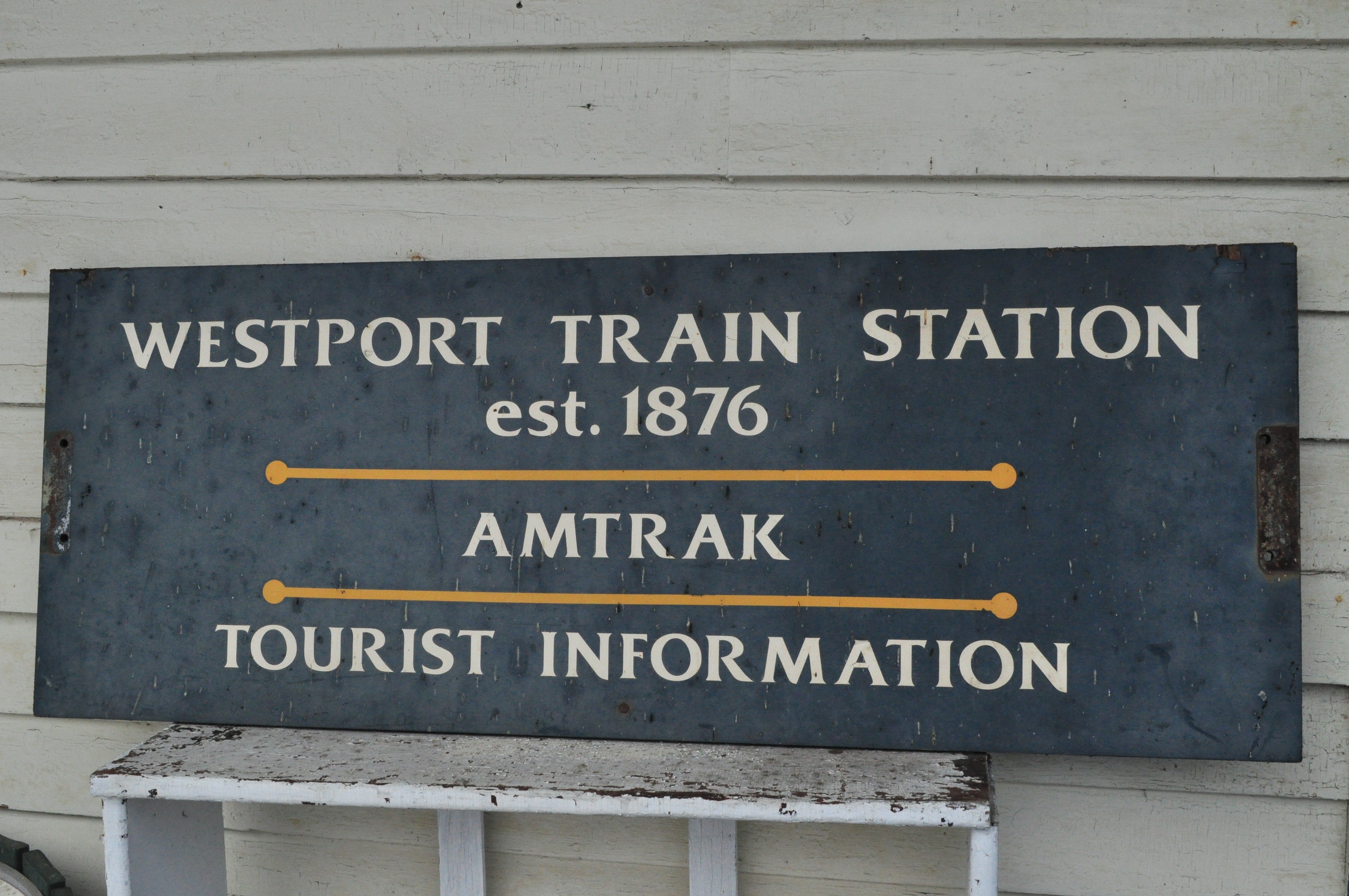
Westport Train Station, Sign
“One train goes up, one train comes down,” a slightly sarcastic phrase we heard describes the traffic that Westport’s Amtrak station experiences on a day-to-day basis. As one passes by Westport on a train that goes from Manhattan to Montreal and back, no one would ever think that the small, wooden station was anything more than just that; but, in the summer months, an undertaking is undergone in their freight room that makes this train station worthy of an entire college course.
In the summer months in Westport, this lonely train station doubles as the Depot Theatre. In its 136-seat venue, actors who range from Broadway to Law and Order come to perform plays for the duration of the theater’s season. For nearly 40 years the Depot Theatre has been a locale for community members to come together and enjoy musicals and plays in a community theater environment but at professional quality. Though the shows feature professional actors, directors and designers, the community is heavily involved in each production. Year-round residents of Westport help with almost every aspect, from sound design to managing the concessions table. So now that the theater is quickly approaching its 40th anniversary, it seems only right that it be celebrated for the four decades of live entertainment that it has brought to its community. And that’s where we came in.
From floor to ceiling—stacked in attics, garages and unused office spaces—boxes comprising of all the papers, playbills, financial reports, headshots and tickets that had ever passed through the theater were untidily piled away and forgotten. After a hour-and-a-half journey from Westport to Skidmore College, this disheveled hoard of materials became the responsibility of five intrepid students, who began their own journey to create a coherent archive of a truly remarkable theater. Unboxing was the first step, one that would have been more pleasantly completed outside where the fresh air could have masked the musty smell of papers hidden away in the dark and the damp for decades. Alas, completing this task outdoors would be against almost every archival protocol we had learned to-date—and it was also winter.
Before and during the work with these boxes, we were tirelessly learning proper methods and techniques required to complete such a sensitive task, with support from Wendy Anthony, Jane Kjaer and Rachel Rieck of Scribner Library's Special Collections. When dealing with older materials, especially when they are meant to be preserved, there are certain principles and practices to be followed: No pens (ink is permanent and damaging), no acidic storage equipment (acid can burn), no liquids or foods near the materials (we may be clumsy and likely to spill). With such knowledge under our belt, we were able to continue treating these materials with the respect they deserved.
Once categorized and sorted, the collection showed some semblance of coherence. We had a box for tickets, one for playbills, several for financials, and even a box just for photos. After learning some standard methods from class, we incorporated them into our project. Each box was titled and coupled with an archival finding aid, written and complied by us. Then Professor of History Jordana Dym brought in a scanner, and our journey of digitization departed. Not aiming to make everything available online due to the scale of the archive, we instead started to sample and digitize the most historically meaningful objects from the boxes. Then the digitized materials, along with our short nonfiction writing pieces, will culminate in a blog-like presentation.
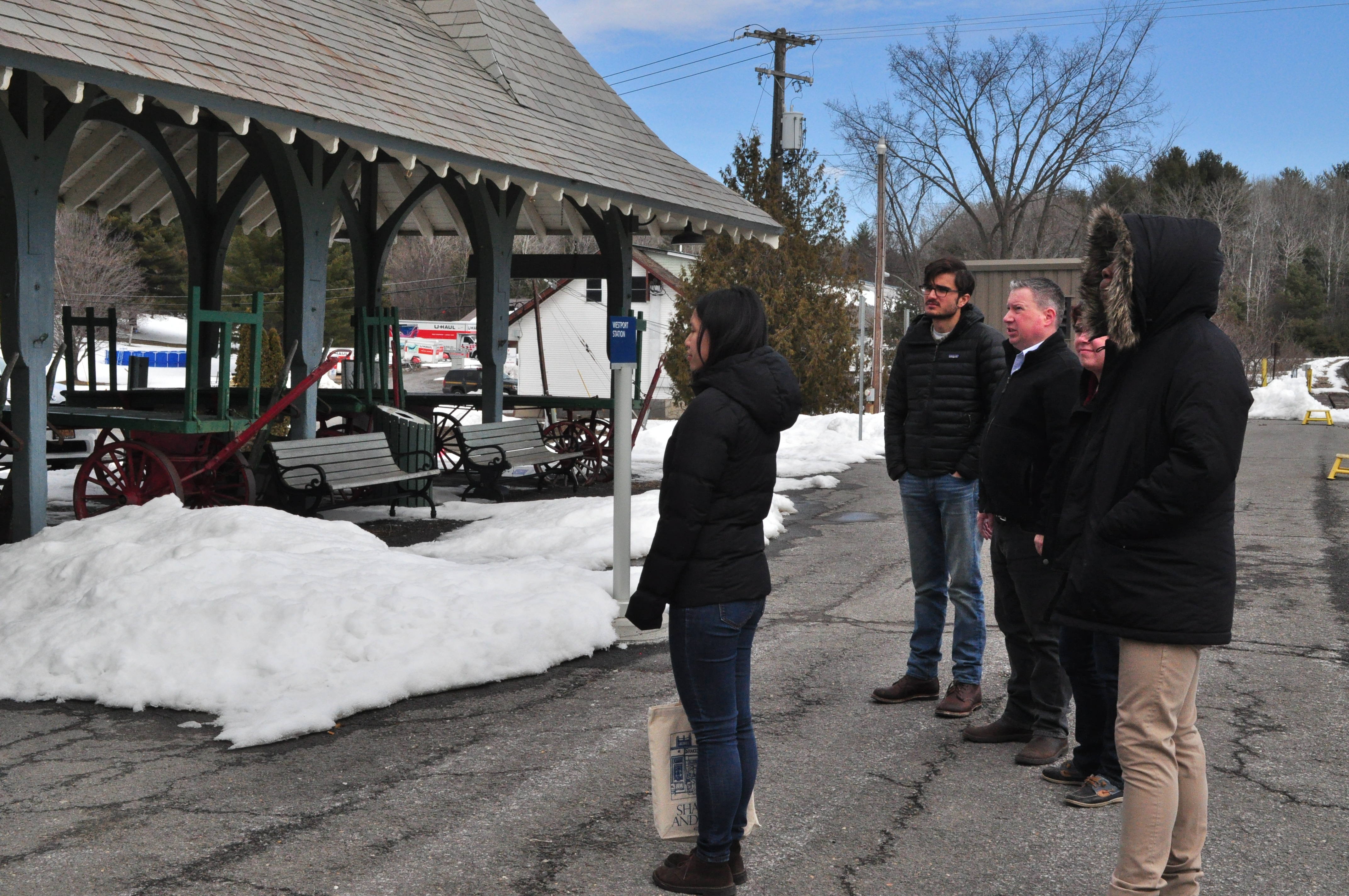
Class visit to the Depot Theatre, Westport, NY
Throughout this semester, we have been able to learn what it really means to create and use an archive in a way that they never would have been given with their majors, and were able to genuinely contribute to one like no class has ever offered.
Next stop? Westport.
—Harry Sultan '17, psychology, and Evian Pan '17, anthropology
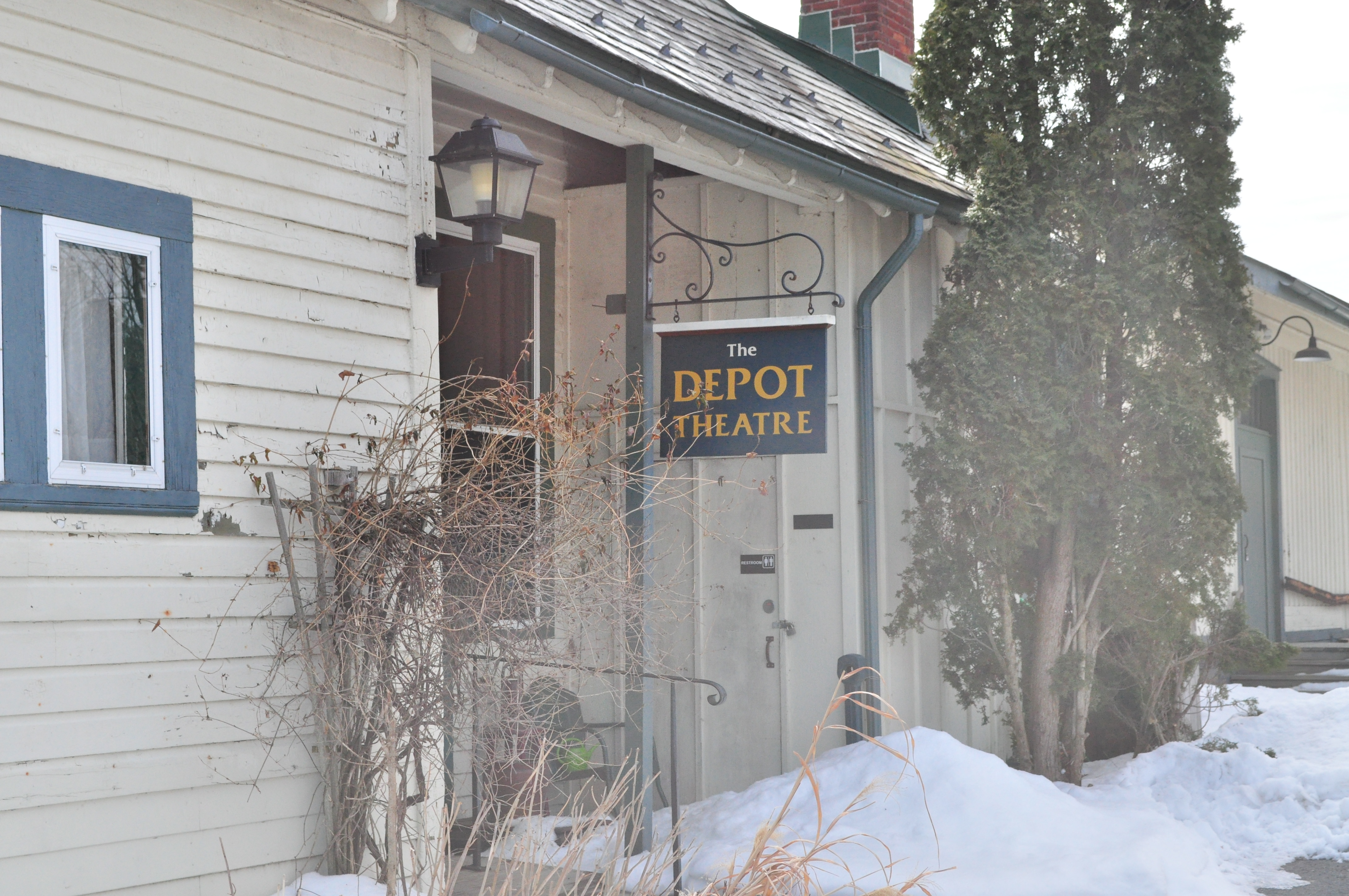
Entrance to the Depot Theatre
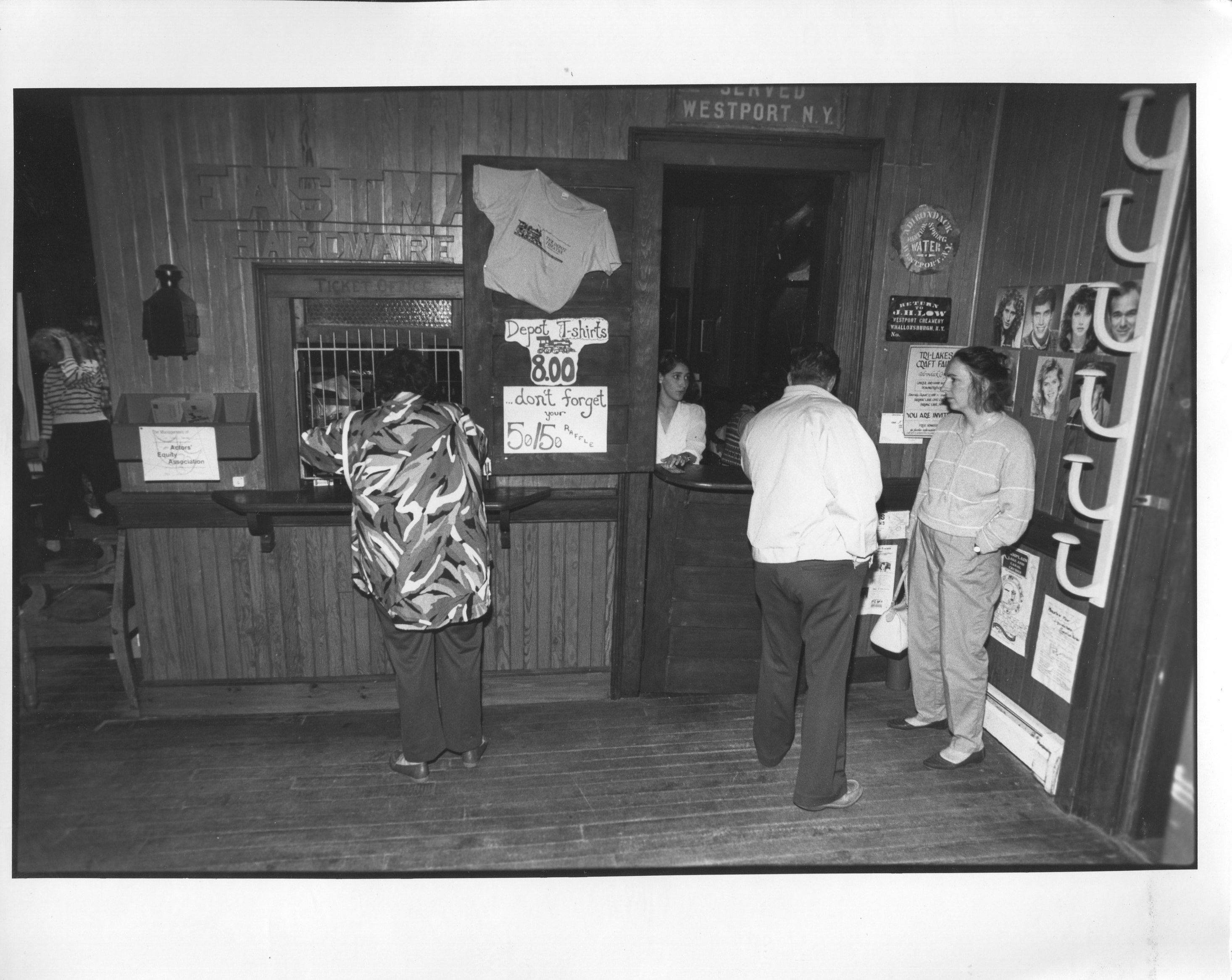
Photo of the Depot Theatre box office. 1988
(Courtesy of Depot Theatre Archive)
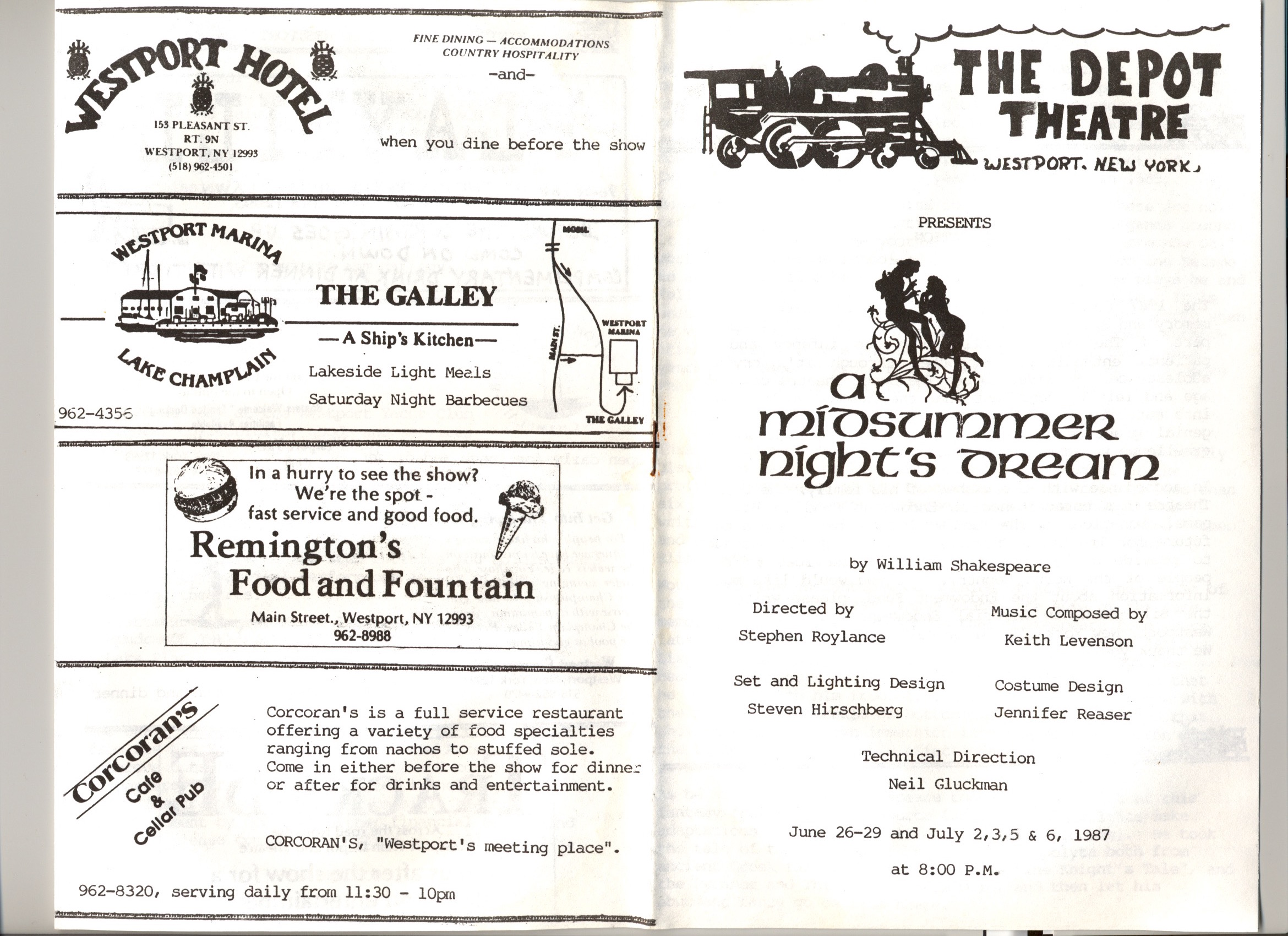
Cover and back cover of the playbill for the 1987 production A Midsummer Night’s Dream (Courtesy of Depot Theatre Archive)
